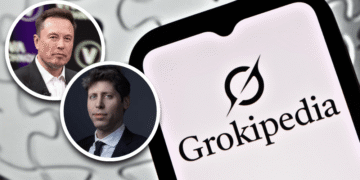Once the king of social media, Facebook is now planning a comeback, and Mark Zuckerberg wants to take it back to its roots. During Meta’s Q4 earnings call on Wednesday, the CEO revealed that a “return to OG Facebook” is one of the company’s key goals for 2025.
While details remain scarce, Zuckerberg made it clear that this initiative would be a major focus in the coming year, emphasizing the need to make Facebook “way more culturally influential than it is today.”
A Risky Move for Meta’s Future
Zuckerberg also warned investors that these changes might come at the expense of short-term revenue, signaling that Meta is willing to take risks to reposition Facebook for the next generation.
The rollout of these updates is expected to begin within the next six months, with Zuckerberg hinting that Facebook may return to elements of its early years.
Facebook’s Declining Popularity Among Younger Users
The announcement comes as Meta struggles to retain younger users, who have increasingly migrated to TikTok, Instagram, and Snapchat.
A 2024 Pew Research survey showed that only 33% of U.S. teens aged 13-17 use Facebook, a dramatic drop from 71% in 2014-2015. Even among Gen Z adults, Facebook is not the platform of choice, with many preferring short-form video apps and alternative social networks.
While Facebook Marketplace remains popular for its practical utility, the social networking aspects of the platform have failed to capture the attention of younger users.
Meta’s Failed Attempts to Win Back Gen Z
Meta has made several attempts to reverse this trend, including a 2024 redesign focused on community engagement, video content, and Facebook Groups. However, these efforts have yet to significantly impact Facebook’s declining popularity among Gen Z.
In 2020, the company experimented with a Campus feature, attempting to recapture the exclusivity of Facebook’s early college-only days, but the initiative was shut down after just 18 months due to low engagement.
Other attempts to lure younger users, such as Facebook-integrated dating services, have similarly fallen flat.
New Social Media Rivals Pose a Challenge
Zuckerberg’s vision for an “OG Facebook” revival faces an uphill battle, especially as alternative social platforms continue to gain traction.
When TikTok faced a brief ban in the U.S. in 2024, many Gen Z users did not return to Meta’s platforms; instead, they flocked to RedNote, a Chinese-owned video-sharing app.
Meanwhile, new decentralized networks, powered by ActivityPub and AT Protocol, are emerging as alternatives to traditional social media, offering users more control over their data and interactions.
Meta’s Attempts to Conceal Facebook’s Decline
Meta has long worked to obscure Facebook’s decline from investors, shifting its reporting metrics over the years.
- In 2019, the company introduced broader engagement figures that combined users from Facebook, Instagram, Messenger, and WhatsApp, rather than reporting numbers for Facebook alone.
- In early 2024, Meta went a step further, eliminating per-app user metrics entirely and instead reporting only “family of apps” statistics, making it more difficult to measure Facebook’s individual performance.
Will ‘OG Facebook’ Be Enough?
As Meta moves forward with its plans to revive Facebook, the company appears willing to make short-term sacrifices in hopes of regaining cultural relevance.
But the big question remains:
Is an “OG” reboot enough to win back Gen Z?
With social media trends shifting toward short-form video and decentralized platforms, nostalgia alone may not be enough to make Facebook cool again.
Whether this strategy will revitalize the platform or serve as another failed attempt to recapture its past glory remains to be seen.












